‘þis were a wikkede wey but whoso hadde a gyde
þat [myȝte] folwen us ech foot’: þus þis folk hem mened.
Quod Perkyn þe Plowman, ‘By Seint Peter of Rome!
I haue an half acre to erie by þe heiȝe weye;
Hadde I eryed þis half acre and sowen it after
I wolde wende wiþ yow and þe wey teche.’
‘þis were a long lettyng,’ quod a lady in a Scleyre.
‘What sholde we wommen werche þe while?’
‘Somme shul sowe þe sak for shedyng of þe Whete.
And ye louely ladies wiþ youre longe fyngres,
þat ye haue silk and Sandel to sowe whan tyme is
Chesibles for Chapeleyns chirches to honoure.
Wyues and widewes wolle and flex spynneþ;
Makeþ cloþ, I counseille yow, and kenneþ so youre douȝtres.
þe nedy and þe naked nymeþ hede how þei liggeþ;
Casteþ hem cloþes [for cold] for so [wol] truþe.
For I shal lenen hem liflode but if þe lond faille
As longe as I lyue, for þe Lordes loue of heuene.
And alle manere of men þat [by þe] mete libbeþ,
Helpeþ hym werche wiȝtliche þat wynneþ youre foode.’|
‘By Crist!’ quod a knyȝt þoo, ‘[þow] kenne[st] us þe beste,
Ac on þe teme, trewely tauȝt was I neuere.
[Ac] kenne me,’ quod þe knyȝt, ‘and [I wole konne erie].’
‘By Seint Poul!’ quod Perkyn, ‘[for þow profrest þee so lowe]
I shal swynke and swete and sowe for us boþe,
And [ek] labour[e] for þi loue al my lif tyme,
In couenaunt þat þow kepe holy kirke and myselue
Fro wastours and wikked men þat [wolde me destruye],
And go hunte hardiliche to hares and foxes,
To bores and to [bukkes] þat breken myne hegges,
And [fette þee hoom] faucons foweles to kille
For [þise] comeþ to my croft and croppeþ my whete.’
Curteisly þe knyȝt [conseyued] þise wordes:
‘By my power, Piers, I pliȝt þee my trouþe
To fulfille þis forward þouȝ I fiȝte sholde.
Als longe as I lyue I shal þee maynetene.’
‘Ye, and yet a point’, quod Piers, ‘I preye [þee] of moore:
Loke [þow] tene no tenaunt but truþe wole assente,
And þouȝ [þow] mowe amercy hem lat mercy be taxour
And mekenesse þi maister maugree Medes chekes;
And þouȝ pouere men profre [þee] presentes and ȝiftes
Nyme it niȝt an auenture [þow] mowe it niȝt deserue.
For þow shalt yelde it ayein at a one yeres [ende]
In a [wel] perilous place [þat] Purgatorie hatte.
And mysbede noȝt þi bondem[a]n, þe better [shalt] þow spede;
þouȝ he be þyn underlying here wel may happe in heuene
þat he worþ worþier set and wiþ moore blisse:
Amice, ascende superius.
For in Charnel at chirche cherles ben yuel to knowe,
Or a knyȝt from a knaue; knowe þis in þyn herte. |
And þat þow be trewe of þi tonge and tales þow hatie,
But if [it be] of wisdom or of wit þi werkmen to chaste;
Hold wiþ none harlotes ne here noȝt hir tales,
And namely at þe mete swiche men eschuwe,
For it ben þe deueles disours, I do þe to understonde.’
‘I assente, by Seint Jame’, seide þe knyȝt þanne,
‘For to werche by þi wor[d] while my lif dureþ.’
‘And I shal apparaille me’, quod Perkyn, ‘in pilgrymes wise
And wende wiþ yow [þe wey] til we fynde truþe.’
[He] caste on [hise] cloþes, yclouted and hole,
[Hise] cokeres and [hise] coffes for coId of [hise] nailes,
And [heng his] hoper at [his] hals in stede of a Scryppe:
‘A busshel of bredcorn brynge me þerInne,
For I wol sowe it myself, and siþenes wol I wende
To pilgrymage as palmeres doon pardon for to haue.
And whoso helpeþ me to erie [or any þyng swynke]
Shal haue leue, by oure lord, to lese here in heruest
And make h[y]m murie þermyd, maugree whoso bigruccheþ it.
And alle kynne crafty men þat konne lyuen in truþe,
I shal fynden hem fode þat feiþfulliche libbeþ,
Saue Ia[kk]e þe Iogelour and Ionette of þe Stuwes
And danyel þe dees pleyere and Denote þe baude
And frere faitour and folk of hi[s] ordre,
And Robin þe Ribaudour for hise rusty wordes.
Truþe tolde me ones and bad me telle it [forþ]:
Deleantur de libro uiuencium; I sholde noȝt dele wiþ hem,
For holy chirche is [holde] of hem no tiþe to [aske],
Quia cum iustis non scribantur.
þey ben ascaped good auenture, [now] god hem amende.’
Dame werch-whan-tyme-is Piers wif hiȝte; |
His douȝter hiȝte do-riȝt-so-or-þi-dame-shal-þee-bete;
His sone hiȝte Suffre-þi-Souereyns-to-hauen-hir-wille-
Deme-hem-noȝt-for-if-þow-doost-þow-shalt-it-deere-abugge-
Lat-god-yworþe-wiþ-al-for-so-his-word-techeþ.
‘For now I am old and hoor and haue of myn owene
To penaunce and to pilgrimage I wol passe wiþ oþere;
Forþi I wole er I wende do write my biqueste.
In dei nomine, amen. I make it myselue.
‘He shal haue my soule þat best haþ deserued,
And [defende it fro þe fend], for so I bileue,
Til I come to hise acountes as my [crede] me [techeþ]––
To haue a relees and a remission, on þat rental I leue.
‘þe kirke shal haue my caroyne and kepe my bones
For of my corn and [my] catel [h]e craued þe tiþe;
I paide [hym] prestly for peril of my soule;
[He is] holden, I hope, to haue me in [mynde]
And mengen [me] in his memorie amonges alle cristene.
My wif shal haue of þat I wan wiþ truþe and na moore,
And dele among my [frendes] and my deere children.
For þouȝ I deye today, my dettes are quyte;
I bar hom þat I borwed er I to bedde yede.
And wiþþe residue and þe remenaunt, by þe Rode of Lukes!
I wol worshipe þerwiþ truþe by my lyue,
And ben his pilgrym atte plow for pouere mennes sake.
My plow[pote] shal be my pi[k] and [putte at] þe rotes,
And helpe my cultour to kerue and [close] þe furwes.’
Now is Perkyn and [þe] pilgrimes to þe plow faren.
To erie þis half-acre holpen hym manye;
Dikeres and Delueres digged up þe balkes; |
þerwiþ was Perkyn apayed and preised hem [yerne].
Oþere werkmen þer were þat wroȝten ful [faste],
Ech man in his manere made hymself to doone,
And somme to plese Perkyn piked up þe wedes.
At heiȝ prime Piers leet þe plowȝ stonde
To ouersen hem hymself; whoso best wroȝte
Sholde be hired þerafter whan heruest tyme come.
[þ]anne seten somme and songen atte Nale
And holpen ere þe[e] half acre wiþ ‘how trol1y lolly’.
‘Now by þe peril of my soule!' quod Piers al in pure tene,
‘But ye arise þe raþer and rape yow to werche
Shal no greyn þat [here] groweþ glade yow at nede,
And þouȝ ye deye for doel þe deuel haue þat recch[e]!’
þo were faitours afered and feyned hem blynde;
Somme leide hir le[g] aliry as swiche lo[r]els konneþ
And made hir mone to Piers [how þei myȝte niȝt werche]:
‘We haue no lymes to laboure wiþ; lord, ygraced be [y]e!
Ac we preie for yow, Piers, and for youre plowȝ boþe,
þat god of his grace youre greyn multiplie
And yelde yow [of] youre Almesse þat ye ȝyue us here;
For we may [neiþer] swynke ne swete, swich siknesse us eyleþ.’
‘If it be sooþ’, quod Piers, ‘þat ye seyn, I shal it soone aspie.
Ye ben wastours, I woot wel, and truþe woot þe soe;
And I am his [h]olde hyne and [auȝte] hym to warne
Whiche þei were in þis world hise werkmen apeired.
Ye wasten þat men wynnen wiþ trauaille and wiþ tene.
Ac truþe shal teche yow his teme to dryue,
Or ye shul eten barly breed and of þe broke drynke; |
But if he be blynd or brokelegged or bolted wiþ Irens,
[þei] shal ete [as good as I, so me god helpe],
Til god of his [grace gare hem to arise].
Ac ye myȝte trauaille as truþe wolde and take mete and hyre
To kepe kyen in þe feld, þe corn fro þe beestes,
Diken or deluen or dyngen upon sheues
Or helpe make morter or bere Muk afeld.
In lecherie and losengerie ye lyuen, and in Sleuþe,
And al is þoruȝ suffraunce þat uengeaunce yow ne takeþ.
Ac Ancres and heremites þat eten but at Nones
And na moore er morwe, myn almesse shul þei haue,
And catel to [cope] hem wiþþat han Cloistres and chirches.
Ac Robert Renaboute shal [riȝt] noȝt haue of myne,
Ne Postles, but þei preche konne and haue power of þe bisshop:
þei shul haue payn and potage and [a pitaunce biside],
For it is an unresonable Religion þat haþ riȝt noȝt of certein.’
[þ]anne gan wastour to wraþen hym and wolde haue yfouȝte,
To Piers þe Plowman he profrede his gloue.
A Bretoner, a braggere, [he b]osted Piers als
And bad hym go pissen wiþ his plowȝ: ‘[pyupsshe] sherewe!
Wiltow, or neltow, we wol haue oure wille
Of þi flour and þi flesshe, fecche whanne us likeþ
And maken us murye þer[miþ] maugree þi chekes.’
þanne Piers þe Plowman pleyned hym to þe knyȝte
To kepen hym as couenaunt was fro cursede sherewes,
‘And fro þise wastours wolueskynnes þat makeþ þe world deere,
For [þei] wasten and wynnen noȝt and [þo] worþ neuere
Plentee among þe people þe while my plowȝ liggeþ’.
Curteisly þe knyȝt þanne, as his kynde wolde,
Warnede wastour and wissed hym bettre:
‘Or þow shalt abigge by þe lawe, by þe ordre þat I bere!’
‘I was noȝt wont to werche’, quod Wastour, ‘now wol I noȝt bigynne!’
And leet liȝt of þe lawe and lasse of þe knyȝte,
And sette Piers at a pese and his plowȝ boþe,
And manaced [hym] and his men if þei mette eftsoone.
‘Now by þe peril of my soule!’ quod Piers, ‘I shal apeire yow alle’,
And houped after hunger þat herde hym at þe firste.
‘Awreke me of wastours’, quod he, ‘þat þis world shendeþ!’
Hunger in haste þoo hente wastour by þe [mawe]
And wrong hym so by þe wombe þat [al watrede his eiȝen].
He buffetted þe Bretoner aboute þe chekes
þat he loked lik a lanterne al his lif after.
He bette hem so boþe he brast ner hire [mawes].
Ne hadde Piers wiþ a pese loof preyed [hym bileue]
þey hadde be [dede and] toluene, ne deme þow noon ooþer.
‘[Lat] hem lyue’, he seide, ‘and lat hem ete wiþ hogges,
Or ellis benes [and] bren ybaken togideres.’
Faitours for fere flowen into Bernes
And flapten on wiþ flailes fro morwe til euen
þat hunger was noȝt hardy on hem for to loke.
For a pot[el] of peses þat Piers hadde ymaked
An heep of herernytes henten hem spades
And kitten hir copes and courtepies hem maked |
And wente as werkmen [to wedynge] and [mowynge]
And doluen [drit] and [dung] to [ditte out] hunger.
Blynde and bedreden were bootned a þousand;
þat seten to begge siluer soone were þei heeled,
For þat was bake for bayard was boote for many hungry;
And many a beggere for benes buxum was to swynke,
And ech a pouere man wel apaied to haue pesen for his hyre,
And what Piers preide hem to do as prest as a Sperhauk.
And [Piers was proud þerof ] and putte hem [in office]
And yaf hem mete [and money as þei] myȝte [asserue].
þanne hadde Piers pite and preide hunger to wende
Hoom [in]to his owene [e]rd and holden hym þere [euere].
‘I am wel awroke of wastours þoruȝ þy myȝte.
Ac I preie þee, er þow passe’, quod Piers to hunger,
‘Of beggeris and bidderis what best be to doone.
For I woot wel, be þow went þei wol werche ille;
Meschief it makeþ þei be so meke nouþe,
And for defaute of foode þis folk is at my wille.
[And it] are my blody breþeren for god bouȝte us alle;
Truþe tauȝte me ones to louen hem ech one,
And helpen hem of alle þyng [after þat] hem nedeþ.
Now wolde I wite, [if þow wistest], what were þe beste,
And how I myȝte amaistren hem and make hem to werche.’
‘Here now’, quod hunger, ‘and hoold it for a wisdom:
Bolde beggeris and bigge þat mowe hir breed biswynke,
Wiþ houndes breed and horse breed hoold up hir hertes,
[And] aba[u]e hem wiþ benes for bollynge of hir womb[e];
And if þe gomes grucche bidde hem go [and] swynke
And he shal soupe swetter whan he it haþ deserued. |
A[c] if þow fynde any freke þat Fortune haþ apeired
[Wip fire or wiþ] false men, fonde swiche to knowe.
Conforte h[e]m wiþ þi catel for cristes loue of heuene;
Loue hem and lene hem [and] so [þe] Iawe of [kynde wolde]:
Alter alterius onlera portate.
And alle manere of men þat þow myȝt aspie
þat nedy ben [or naked, and nouȝt han to spende,
Wiþ mete or wiþ mone lat make hem fare þe bettre].
Loue hem and lakke hem noȝt; lat god take þe uengeaunce;
þeiȝ þei doon yuele lat [þow] god yworþe:
Michi uindictam et ego retribuam.
And if þow wilt be gracious to god do as þe gospel techeþ
And biloue þee amonges [lowe] men: so shaltow lacche grace.’
Facite uo[bis] amicos de mammona iniquitatis.
‘I wolde noȝt greue god’, quod Piers, ‘for al þe good on grounde!
Miȝte I synnelees do as þow seist?’ seide Piers þanne.
‘Ye I [h]ote þee’, quod hunger, ‘or ellis þe bible lieþ.
Go to Genesis þe geaunt, þe engendrour of us alle:
In sudore and swynk þow shalt þi mete tilie
And laboure for þi liflode, and so oure lord hiȝte.
And Sapience seiþ þe same–I seiȝ it in þe bible:
Piger [propter frigus] no feeld [w]olde tilie;
He shal [go] begge and bidde and no man bete his hunger.
Maþew wiþ mannes face mouþeþ þise wordes:
Seruus nequam hadde a Mnam and for he [n]olde [it use]
He hadde maugree of his maister eueremoore after,
And bynam hym his Mnam for he [n]wolde werche
And yaf [it hym in haste þat hadde ten bifore];
And [siþen] he seide––[hise seruauntz] it herde––
“He þat haþ shal haue and helpe þere [nede is] |
And he þat noȝt haþ shal noȝt haue and no man hym helpe,
And þat he weneþ weI to haue I wole it hym bireue”.
Kynde wit wolde þat ech a wiȝt wroȝte,
Or [wiþ tech]ynge or [tell]ynge or trauaillynge [of hondes],
Contemplatif lif or Actif li; crist wolde [it als].
þe Sauter seiþ, in þe psalme of Beati omnes,
þe freke þat fedeþ hymself wiþ his feiþful labour
He is blessed by þe book in body and in soule:
Labores manuum tuarum &c.’
‘Yet I preie [þee]’, quod piers, ‘p[u]r charite, and [þpw] konne
Any leef of lechecraft lere it me, my deere;
For some of my seruaunts and myself boþe
Of al a wike werche noȝt, so oure wombe akeþ.’
‘I woot wel,’ quod hunger, ‘what siknesse yow eyleþ.
Ye han manged ouer muche; þat makeþ yow grone.
Ac I hote þee’, quod hunger, ‘as þow þyn hele wilnest,
þat þow drynke no day er þow dyne somwhat.
Ete noȝt, I hote þee, er hunger þee take
And sende þee of his Sauce to sauore þi lippes,
And keep som til soper tyme and sitte noȝt to longe;
[A]rys up er Appetit haue eten his fille.
Lat noȝt sire Surfet sitten at þi borde;
L[o]ue hym noȝt for he is [a] lech[our] and likerous of tunge,
And after many maner metes his mawe is [alonged].
And if þow diete þee þus I dar legge myne [armes]
þat Phisik shal hi[s] furred ho[od] for his fode selle,
And his cloke of Calabre [and] þe knappes of golde,
And be fayn, by my feiþ, his Phisik to lete,
And lerne to laboure wiþ lond [lest] liflode [hym faille].
[þer are mo lieres pan] leches; lord hem amende!
þey do men deye þoruȝ hir drynkes er destynee it wolde.’ |
‘By Seint [Pernele]’, quod Piers, ‘þise arn profitable wordes!
[þ]is is a louely lesson; lord it þee foryelde.
Wend now whan [þi wil is], þat wel be þow euere.’
‘[I] bihote god,’ quod hunger, ‘hennes [nil] I wende
[Er] I haue dyned bi þis day and ydronke boþe.’
‘I haue no peny,’ quod Piers, ‘pulettes to bugge,
Neiþer gees ne grys, but two grene cheses,
A fewe cruddes and creme and [a cake of otes],
[A lof] of benes and bran ybake for my fauntes.
And yet I seye, by my soule! I haue no salt bacon
Ne no cokeney, by crist! coloppes to maken.
Ac I haue percile and pore[t] and manye [plaunte coles],
And ek a cow and a calf, and a cart mare
To drawe afeld my donge þe while þe droȝte lasteþ.
By þis liflode [I moot] lyue til lammesse tyme,
By þat I hope to haue heruest in my crofte;
[þ]anne may I diȝte þi dyner as [þee] deere likeþ.’
Al þe pouere peple pescoddes fetten;
Benes and baken apples þei broȝte in hir lappes,
Chibolles and Cheruelles and ripe chiries manye;
And profrede Piers þis present to plese wiþ hunger.
[Hunger eet þis] in haste and axed after moore.
þanne pouere folk for fere fedden hunger yerne
Grene poret and pesen; to [peisen] hym þei þoȝte.
By þat it neȝed neer heruest and newe corn cam to chepyng.
þanne was folk fayn and fedde hunger wiþ þe beste;
Wiþ good Ale as Gloton taȝte [þei] garte [hym to] slepe.
And þo [n]olde Wastour noȝt werche, but wandre[d] aboute, |
Ne no beggere ete breed þat benes Inne [come],
But Coket [or] clermatyn or of clene whete,
Ne noon halfpeny ale in none wise drynke,
But of þe beste and of þe brunneste þat [brewesteres] selle.
Laborers þat haue no land to lyue on but hire handes
Deyne[þ] nouȝt to dyne a day nyȝt olde wortes.
May no peny ale hem paie, ne no pece of bacoun,
But if it be fressh flessh ouþer fissh [y]fryed,
And þat chaud and plus chaud for chillynge of hir mawe.
And he be heiȝliche hyred ellis wole he chide;
[þat] he was werkman wroȝt [warie] þe tyme.
Ayeins Catons counseil comseþ he to Iangle:
Paupertatis onus pacienter ferre memento;
He greueþ hym ageyn god and gruccheþ ageyn Reson,
And þanne corseþ þe kyng and al [pe] counseil after
Swiche lawes to loke laborers to [chaste].
Ac whiles hunger was hir maister þer wolde noon chide
Ne stryuen ayeins [þe] statut, so sterneliche he loked.
Ac I warne yow werkmen, wynneþ whil ye mowe
For hunger hiderward hasteþ hym faste.
He shal awake [þoruȝ] water wastours to chaste;
Er fyue yer be fulfilled swich famyn shal aryse.
þoruȝ flo[od] and foule wedres, fruytes shul faille,
And so sei[þ] Saturne and sente yow to warne.
Whan ye se þe [mone] amys and two monkes heddes,
And a mayde haue þe maistrie, and multiplie by eiȝte,
þanne shal deeþ wiþdrawe and derþe be Iustice,
And Dawe þe dykere deye for hunger
But [if] god of his goodnesse graunte us a trewe.
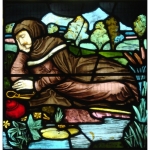


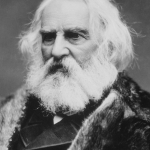

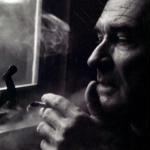
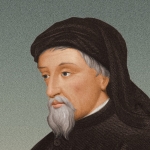
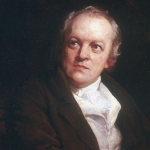


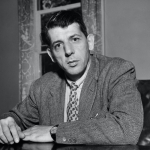


Comment form: